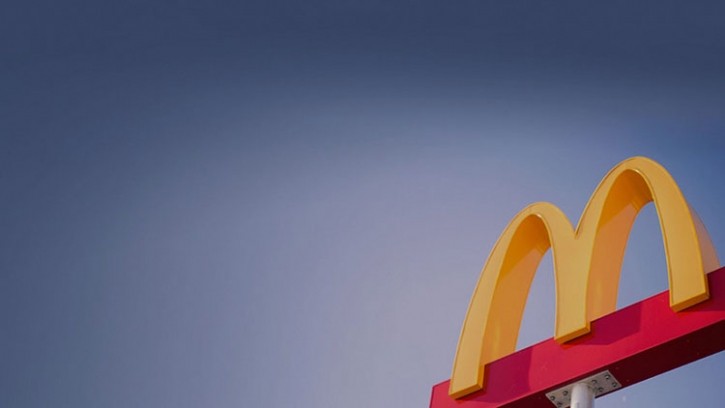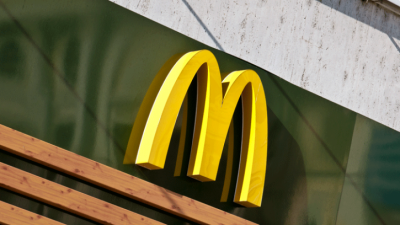The Lowdown: McDonald’s and the pro-Palestinian protestors

Rats and restaurants do not make good bedfellows. What’s actually happened?
Footage has appeared on TikTok showing mice painted red, green, black and white – the colours of the Palestinian flag – being released into a busy branch of the fast-food outlet located in Nechells in central Birmingham by a man with what appears to be a Palestinian flag draped around his head. As the rodents scurry around the floor, diners can be heard screaming and seen jumping back in shock. The perpetrator then shouts: “Boycott Israel” and “fuck Israel”. Footage of similar incidents, which took place at McDonald’s branches in Perry Barr and Small Heath, has also been posted, although it’s unclear whether they are linked. Additionally, a video has circulated of a McDonald’s in Keighley where the windows were smashed, and stick insects released into the restaurant.
Why are the protestors targeting McDonald’s?
It is thought the stunts are related to the belief the chain 'supports Israel'. The protests have happened against the backdrop of the latest conflict between Palestinian militant group Hamas and the Israeli military, which has been waging for nearly a month. During the first week of the war, a local McDonald’s franchise operator in Israel agreed to give thousands of free meals to Israel Defence Forces troops and posts on social media claim that it has so far given out 100,000 free meals. This has prompted a consumer backlash and messages from other regional franchises distancing themselves from the move. Franchise groups in Kuwait, Pakistan and other countries issued statements confirming that they did not share ownership with the Israeli franchise. Others such as in Saudi Arabia also noted that they had made financial donations to aid Gaza, the Palestinian territory that has been under blockade by Israel since the early days of the war.
How has McDonald’s responded?
The fast food giant has condemned the mice protests and said it was ‘dismayed by the disinformation and inaccurate reports’ regarding its position in response to the conflict in the Middle East. “McDonald’s Corporation is not funding or supporting any governments involved in this conflict, and any actions from our local developmental licensee business partners were made independently without McDonald’s consent or approval,” the company said in a statement. It went on to condemn ‘violence of any kind’ and said it stands ‘firmly against hate speech’. “We are doing everything we can to ensure the safety of our people in the region while supporting the communities where we operate.”
Is McDonald’s the only brand to be targeted by the protestors?
Starbucks has also faced calls for a boycott for allegedly favouring Israel during the ongoing conflict, as has Disney. A Starbucks in Keighley was targeted by activists alongside the McDonald’s, with protestors using hammers to smash the windows of the café’s storefront. It follows Starbucks’ decision in the US to sue its union, Starbucks Workers United, after the labour organisation posted a since-deleted message on X expressing solidarity with Palestinians. The union, which is counter-suing Starbucks, reportedly shared an image of a bulldozer operated by Hamas tearing down a fence on the Gaza strip. “We unequivocally condemn these acts of terrorism, hate and violence, and disagree with the statements and views expressed by Workers United and its members,” Starbucks said in a statement. “Workers United’s words and actions belong to them, and them alone.” As well as the action in the UK, the dispute has led to protesters in New York plastering Starbucks with pro-Palestinian stickers during a recent march in Brooklyn.
What can we learn from these episodes?
It shows the delicate PR tightrope corporate brands must walk during times of emotionally-charged partisan disputes. Despite efforts by McDonald’s and Starbucks to steer clear of allying with a particular side in the bitter conflict, this has not stopped protesters choosing to target them over perceived alliances. But there are other observations to be made, too. With regards to Starbucks, this latest dispute adds another layer of acrimony to an already fraught relationship between the coffee shop giant and its unionised workforce in the US. For McDonald’s, meanwhile, the acts that apparently inspired the in-store protests demonstrate the structural challenges of the decentralised, franchise-based system for which the Golden Arches is famous. Its model, which empowers local business owners to make independent decisions relevant to their own region, can lead to confusion and blurred lines between the identity of the corporate brand and that of the business owner when it comes to perceived political action such as this.
This article uses insight from Restaurant's sister publication MCA. To read the original article, click here.


















